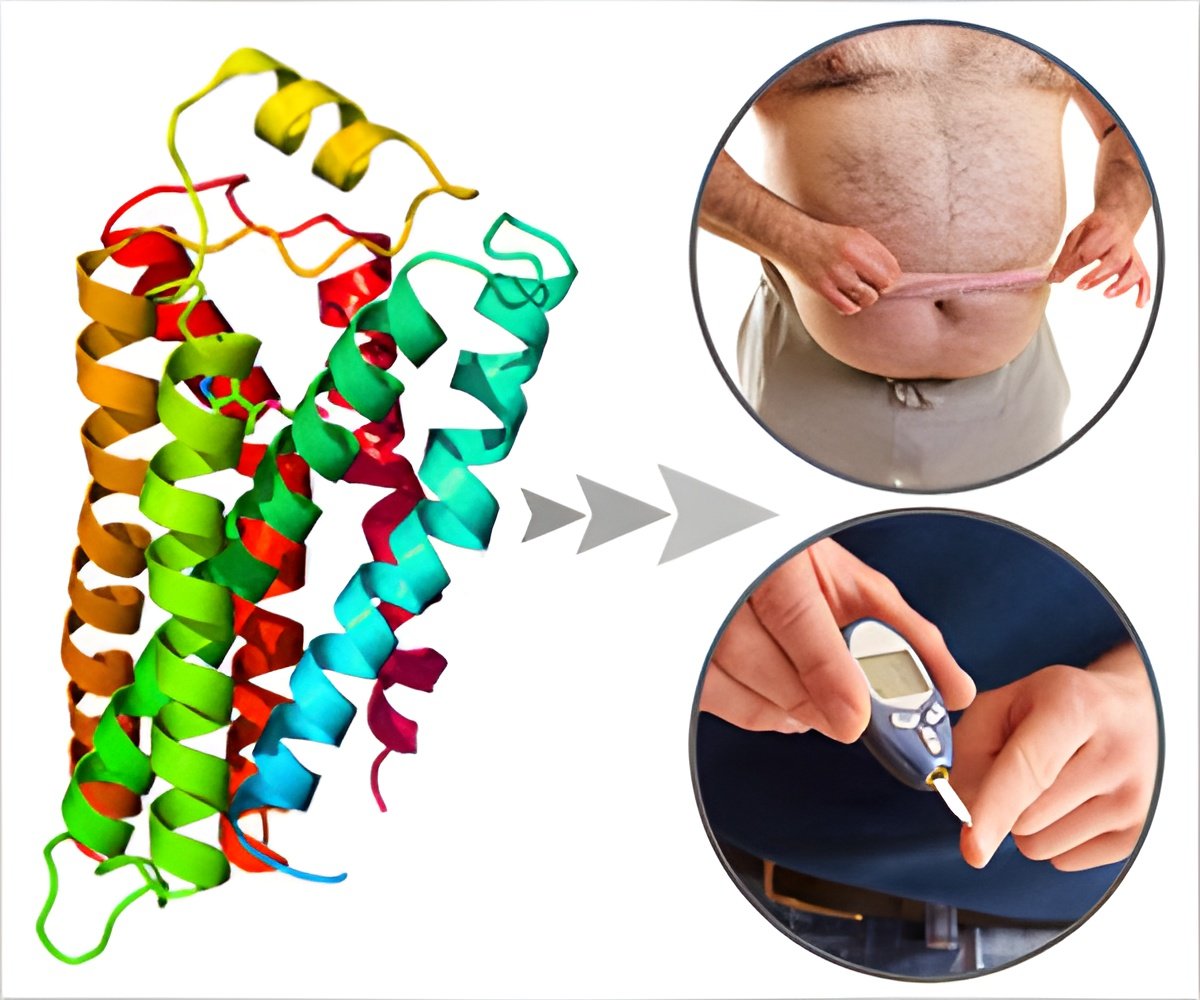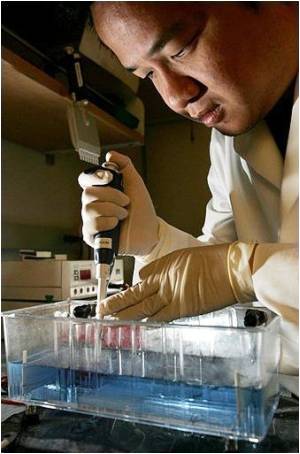A mouse study has found evidence of a key enzyme that plays a role in the development of insulin resistance in humans.

Now, researchers at Joslin Diabetes Center have identified an enzyme called PKC-delta as an important molecular modifier for development of insulin resistance, diabetes and fatty liver in mice.
Investigators in the laboratory of C. Ronald Kahn began with two existing strains of mice that are on opposite sides of the spectrum for insulin resistance.
"The 'B6' mouse is very prone to develop both obesity and diabetes, and the '129' mouse is quite protected from both, even if it possesses a genetic defect in insulin signaling," said Kahn, who is the Mary K. Iacocca Professor of Medicine at Harvard Medical School.
"Comparing the two models, it's as if there's an on/off switch for insulin resistance and diabetes between them. We reasoned that if we could find out the differences between B6 and 129 mice, we could identify a factor that could be a major modifier of insulin resistance, and a good drug target for treatment of type 2 diabetes."
The researchers then showed that levels of the PKC-delta enzyme were about two times as high in the liver and other tissues in the B6 as in the '129' mouse.
Advertisement
Biopsies of human liver tissue also showed that levels of the enzyme are heightened in people who are obese or have diabetes, said Kahn.
Advertisement
The study was published online in the Journal of Clinical Investigation.
Source-ANI















